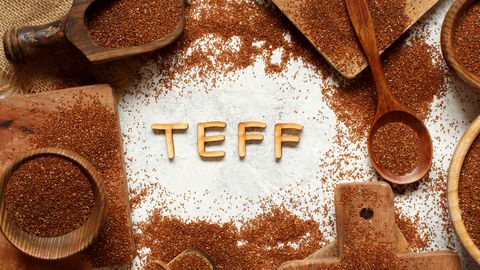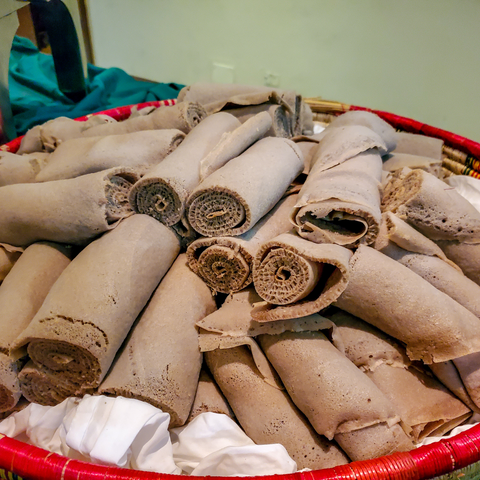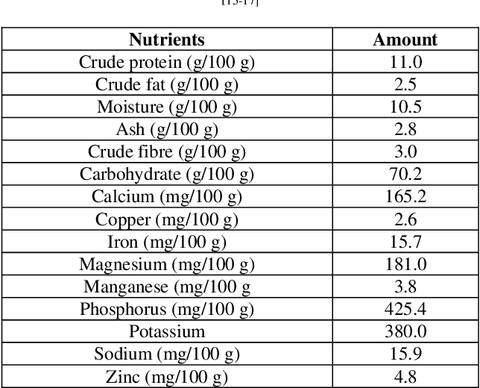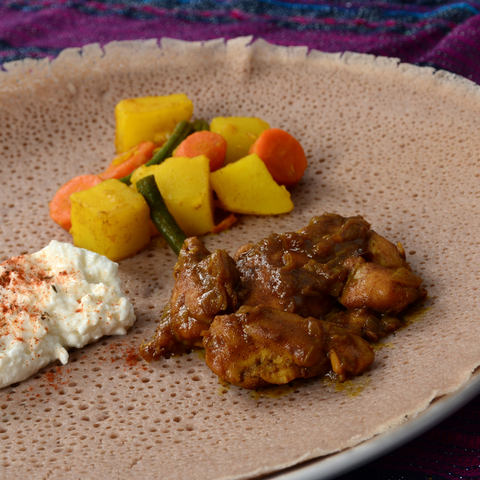Have you ever heard of Teff?
In the heartland of Ethiopia, nestled amidst the highlands, grows a tiny grain with colossal nutritional potential—Teff. Often referred to as Ethiopia's best-known secret, Teff has been a dietary staple for centuries, serving as a cornerstone in the country's culinary traditions and cultural practices.

Image taken from Canva
Teff is not merely a grain; it's a cultural icon, deeply woven into the fabric of Ethiopian life. With a history dating back thousands of years, Teff has played a pivotal role in shaping the nation's cuisine. It is the main ingredient in the beloved Ethiopian flatbread, "Injera," a spongy, fermented delight that graces tables across the country. Interestingly, fermenting Teff to make injera increases the amount of protein in it.
We will be exploring its ethnomedical uses, and uncovering the diverse ways this tiny grain is reshaping the narrative of global nutrition. We will also look at the multifaceted roles it plays—from traditional Ethiopian dishes to modern gluten-free diets and beyond.
What makes Teff so special?
Teff is not your average grain. It's a nutritional powerhouse that has been a staple in Ethiopian cuisine for thousands of years. Despite its small size, teff is loaded with essential vitamins, minerals, and fiber. It's also naturally gluten-free, making it an excellent choice for those with gluten sensitivities or celiac disease.

Image taken from Canva
All of this goodness tempted a Dutch man named Jans Roosjen to file a patent on Teff, claiming to have invented it! Had he been successful, it would have meant nobody in Europe could make Teff without paying him for a license!
Rich in essential nutrients
One of the standout features of teff is its impressive nutrient profile. It's an excellent source of complex carbohydrates, providing a steady release of energy throughout the day. Teff is also high in protein, making it a valuable addition to vegetarian and vegan diets. Additionally, teff is rich in iron, calcium, magnesium, and zinc, which are all crucial for maintaining optimal health.

Image taken from Semantic Scholar
Supports digestive health
Teff is a great ally for your gut. Its high fiber content promotes healthy digestion and helps prevent constipation. The fiber in teff also acts as a prebiotic, feeding the beneficial bacteria in your gut and promoting a healthy gut microbiome. A healthy gut is not only essential for digestion but also plays a vital role in supporting your immune system and overall well-being.
Boosts energy and aids in weight management
If you're looking for a natural energy booster, teff is your answer. The complex carbohydrates in teff provide a sustained release of energy, keeping you fueled throughout the day. This makes it an ideal choice for athletes or anyone looking to enhance their physical performance. Additionally, teff's high fiber content helps you feel fuller for longer, aiding in weight management and preventing overeating.
How to incorporate teff into your diet
Now that you're aware of the incredible health benefits of teff, you're probably wondering how to incorporate it into your diet. Luckily, there are numerous ways to enjoy this ancient super grain. Teff flour can be used in baking, making it a fantastic alternative for gluten-free recipes. You can also cook teff grains and use them as a base for salads, porridge, or as a side dish. Teff injera, a traditional Ethiopian flatbread, is another delicious way to savor the unique flavor of this grain.

Whether you're looking to boost your nutrient intake, support your digestive health, or simply try something new, teff is a fantastic choice. This ancient super grain from Ethiopia is not only delicious but also a nutritional powerhouse. So why not give teff a try and experience the incredible benefits for yourself? Your body will thank you!
References: Teff Fact Sheet
Check out this video of our Teff pancakes:
